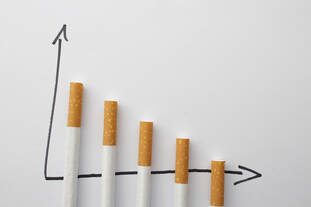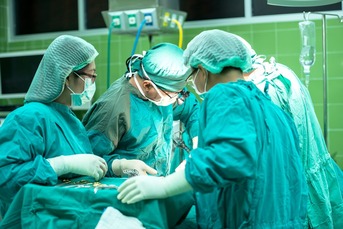|
Welcome to the second post in this series looking at epistemology. As I alluded to in the introductory post, I wanted to start by looking at the very definition of knowledge itself. Now this may seem like a bit of an odd starting point to some of you. Indeed, you may feel that you have a pretty clear idea of what we mean when we say the word knowledge. And it is probably this fact - this innate feeling of the term - that provides some of the fascinating thinking points. This is because, as we shall find out when we start to unpick the definitions that we have been using, we start to find problems with what we ‘feel’ is knowledge, and how we actually articulate that. Let’s explore!
0 Comments
Welcome to the start of a new blog series: How do we know? This is a series that I have been aiming to get started for some time now. The primary goal is to look deeper into the topic of epistemology; the domain of philosophy that explores what knowledge actually is, how we can best approach it, and some of the many challenges that this path imposes. It aims to describe my exploration of this field as I look into the different lines of enquiry that many great thinkers have taken to try and answer some of these hardest of questions:

“I see in your eyes the same fear that would take the heart of me.
A day may come, when the strength of men fails, When we forsake our friends, and break all bonds of fellowship. But it is not this day!” Aragorn, King of Gondor As we enter the first days of the tempest that is the COVID-19 pandemic, it feels like a suitable time to put pen to paper again to document the landscape. It seems likely that we are living through a moment in history (a ‘once in a century event’ our health secretary has called it), and it is already starting to feel a little surreal from here. I can imagine that this might be what it was like in the early days of the great wars, or the worst days of the cold war: a sense of colossal forces moving throughout the world, whose potential impact is unclear, but almost certainly massive. A slight variation on this feeling is that we, as healthcare workers, are the footsoldiers in this upcoming battle, and with the knowledge that first contact with the enemy is imminent (I appreciate that, at the time of publishing this, the first contact has probably arrived for many of you). But enough over-dramatic build up for now, and time to do some more useful writing. Here, I hope to put down a few thoughts to entertain (or maybe just occupy) those who are stuck in self-isolation at this time, and also provide a reference point for posterity; to allow myself (and anyone else that is interested) to look back at the time before the wave hit, and recall what we were thinking.  Once again, some time has passed since my last post and it felt as if that needed changing. As such, this outing is a mild departure from some of the more clinically-directed recent posts and looks at a slightly more parallel topic: that of habits. More specifically, this is a reflection on one of my recent reads which I have found to be particularly worth eulogising. The book in question is “Atomic Habits” by James Clear, and it follows in the footsteps of another fascinating (though slightly less recent) read of mine: “The Power of Habit” by Charles Duhigg. You’ll not win any prizes for guessing that the topic of these books is habit formation and the manipulation of such habits towards one’s desired goals. In a profession such as medicine, some of the concepts here have huge potential, and I so I thought this would be a worthwhile exploration.  It’s just turned 8pm on Tuesday, and the room is about half full of the usual crowd. The smell of freshly brewed, specially sourced Peruvian coffee wafts over the circle of plastic chairs and their occupants, as gentle conversation about anaerobic thresholds is exchanged. The door shuts gently behind a lycra-clad latecomer - the breeze of its closing causing the ‘Anaesthetists Anonymous” banner on the adjacent wall to flutter gently. As the chair signals the start of the meeting, a young man (though not as young as he would like to still think) stands up to speak first. “My name is Tom, and I don’t like muscle relaxants” A soft murmur ripples around the group. A handful of heads nod sympathetically, whilst others turn to their neighbour, eyebrows dancing. Anaesthetists are well known for their particularities of practice, but this was still a surprising revelation. That’s a whole third of the sacred triad! “I just think reversing them is a whole pile of…” 
Last week I went along to my 2nd PeriopMan event of the year, attending the annual meeting at the Manchester Conference Center. The day continued the impressive trend that I enjoyed at their anaemia half-day earlier in the year, bringing together some excellent speakers covering a wide range of topics. We were also privileged enough to be invited to attend to run a stand for NWRAG and in this blog I’ve tried to put summarise a few of the highlights of the day.
|
The BlogA collection of our most recent posts on articles, guidelines and interesting thoughts. Archives
February 2022
Categories
All
|
 RSS Feed
RSS Feed
